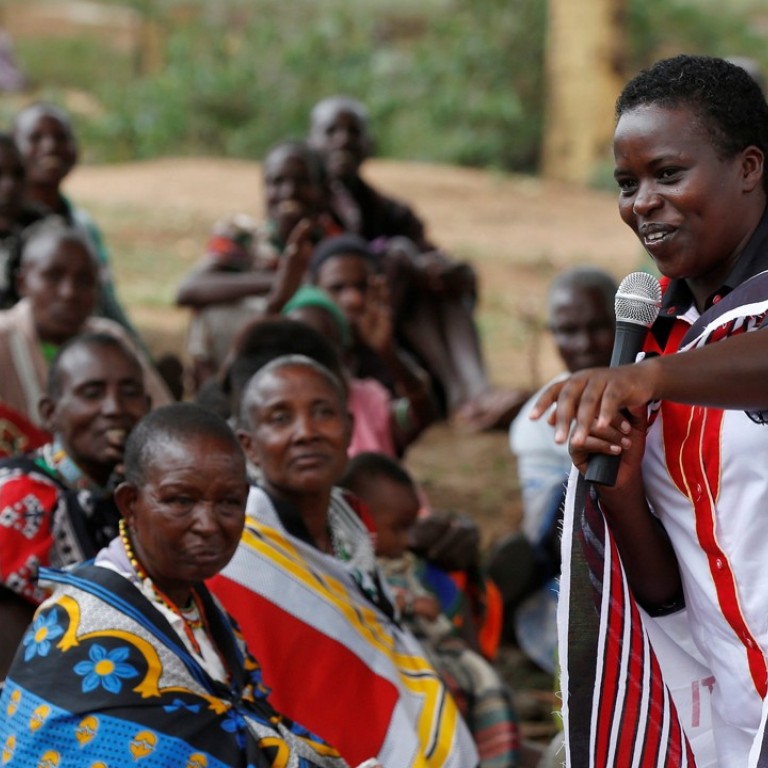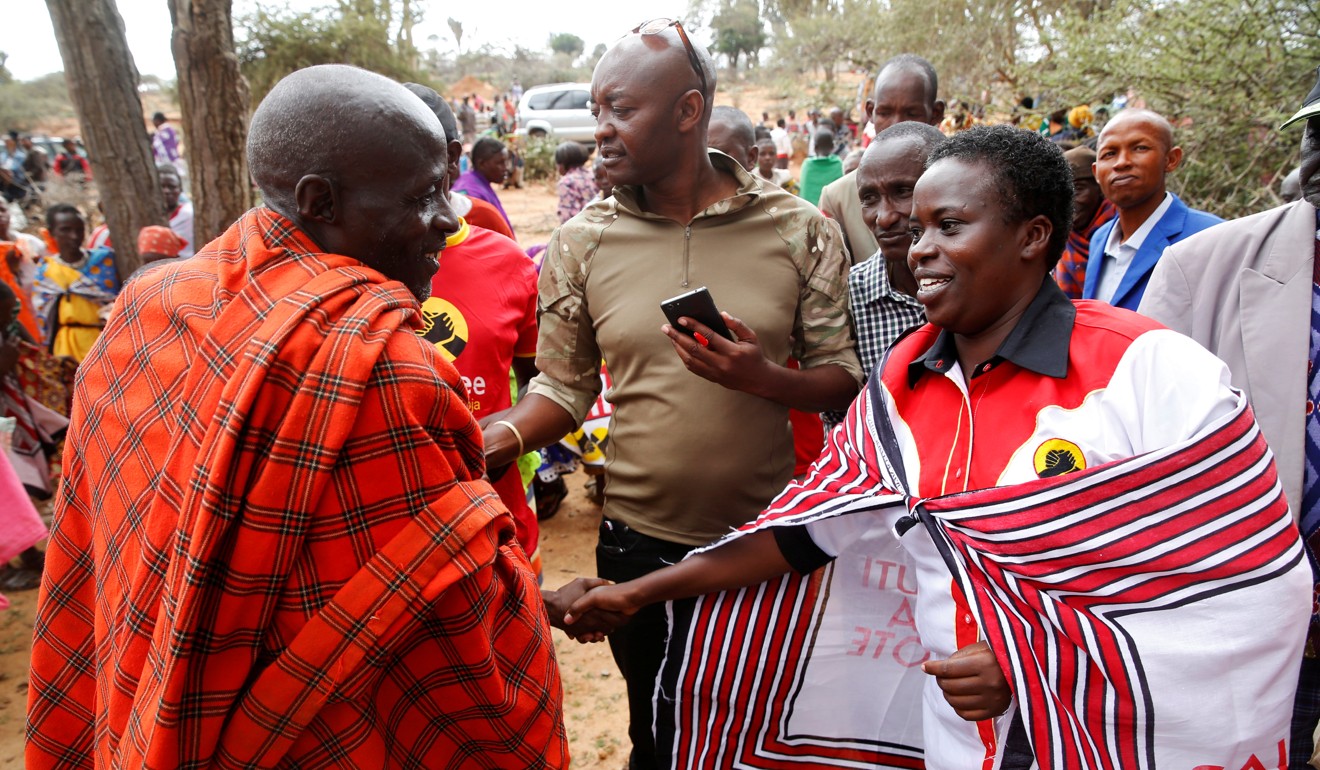
‘They called me a traitor and a prostitute’: female candidates in Kenyan elections face uphill battle
Out of Kenya’s 290 elected members of the national assembly, just 16 are women with the full lawmakers’ budget
Since entering politics, Kenyan lawmaker Sarah Korere has been insulted, shot at, slapped by a colleague and cursed by tribal elders – but she’s still trying to take a man’s parliamentary seat in one of Kenya’s most violent regions.
Korere’s experiences are symptomatic of a wider hate campaign against female candidates in Kenyan politics, women representatives say, which helps give the east African nation the lowest representation of women in politics in its region.
The result is women lack legal protection in areas such as property rights, child support, health and education. Kenya passed a law outlawing domestic violence only in 2015.
Korere helped finalise that bill, and introduced another requiring employers to provide facilities for breastfeeding staff after she showed up to parliament with a three-week-old baby and found nowhere to nurse.
They have called me a traitor and a prostitute. When elders cursed me, my mother cried for a week and begged me to leave politics
“They have called me a traitor and a prostitute,” the 40-year-old said with a grin. “When elders cursed me, my mother cried for a week and begged me to leave politics.”
In East Africa, nearly two-thirds of Rwandan lawmakers are women, and in neighbouring Uganda and Tanzania they make up more than a third of legislators. In Kenya, a fifth of lawmakers are women – the same proportion as Saudi Arabia.
Only 16 per cent of the 10,910 candidates competing in elections on Tuesday are women, the electoral board said. None of the presidential candidates is a woman.
During the last polls five years ago, Kenya tried to increase women’s representation in the 349-member lower house of parliament and 67-seat upper house.
This involved reserving 47 seats for women in the lower house, and giving them a proportion of “nominated” seats – divided up between parties according to their proportion of the overall vote.
But that forces most women lawmakers into a ghetto where they control budgets that are a small fraction of those run by male lawmakers – or no money at all.
Each elected member of parliament gets 60 million Kenyan shillings (US$600,000) annually for development projects in their constituency – vital for building political support. But seats reserved for women get only 7 million shillings. Nominated lawmakers get no money at all.
Out of Kenya’s 290 elected members of the national assembly, just 16 are women with the full lawmakers’ budget.
Elected opposition lawmaker Millie Odhiambo said most women candidates lacked the money or party support to break into mainstream politics. Male rivals often attacked them physically, she said.
“They usually think women are easy targets because we are not normally violent. They think they can intimidate you and you will give up,” she said.
In April, her house was torched after she won party primaries and her bodyguard was killed during a clash with supporters of a rival.

Korere, who held a seat reserved for women in the outgoing parliament, is undaunted. This time she is running for the ruling party against the sitting male opposition MP in her native Laikipia, an arid northern region plagued by violent clashes over land.
“I felt I could not serve people properly as a women’s representative,” she said after holding a rally on the edge of a dusty village under a spreading candelabra tree.
A crowd of men – largely members of Korere’s Maasai tribe, dressed in colourful checked blankets – sat apart from the group of women wearing beaded necklaces, many of them nursing babies.
She cracked jokes about her opponent Mathew Lempurkel, who she has accused of violently assaulting her in a cabinet office, paying tribal elders to curse her and recruiting youth to disrupt her rallies.
My opponent says I cannot run because I wear a skirt. Today, as you can see, I am wearing trousers
Her opponent, who is facing charges of inciting violence and racial contempt for unrelated incidents, did not return calls seeking comment. Messages left with his lawyer also went unanswered.
Lempurkel has publicly accused Korere of assaulting him. She responds with humour.
“My opponent says I cannot run because I wear a skirt,” she told the rally to laughter. “Today, as you can see, I am wearing trousers.”
Her message has won support among both sexes.
“We like Sarah because she is working for people’s families. She is strong,” said Solomon Ole Pusi, who voted for her opponent in the last election but now plans to back Korere.
Opposition lawmaker Esther Passaris said the few women parliamentarians often banded together across party lines to push initiatives on issues such as preventing girls from being married too young, ensuring supplies of sanitary pads for schoolgirls to reduce absenteeism, and education standards.
Last year a rival politician told Passaris “everyone wants to rape you” on live television. The talk-show host, also a man, just laughed. Attitudes like that are why women need more power in Kenya, she said.
“Women are half of the population and men do not represent their needs,” she said. “In a patriarchal society, there’s a lot of rape and violence against women and children ... Men haven’t really focused on it but the women want it to stop.”

